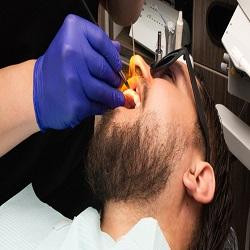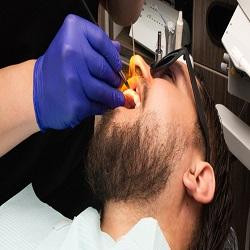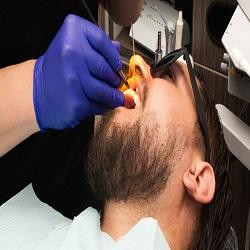When you have a damaged tooth due to either having a cracked or chipped tooth leading to risks of losing such teeth. Our modern dentistry has designed the procedure to bring back the tooth size shape and strengthen along with a radiant smile.
What are Dental Crowns?
A dental crown(s) are artificially designed caps similar to the tooth shape to be cemented on the damaged tooth surface which is the visible part of it. Additionally, the tooth crown helps the encasing of the damaged tooth inside. By doing this, the broken tooth can be protected from further damages, making it stranger and maintaining its natural shape.
Types Of Dental Crowns:
The types of a tooth crown(s) depend on the material used to manufacture them.
Commonly used tooth crowns are:
- A Temporary Crown: such forms of crown include resin material to make them. However, they won’t be permanent, they are available at a reasonable cost of installation.
- Gold and Silver alloy Crowns: such types of crowns are made of metal alloys to enhance their strength making them a very hard-wearing restoration. These crowns are generally silver or gold in color.
- Porcelain and Ceramic Crowns: These are designed to fit the natural color of the teeth and are the preferred choice for persons who are allergic to several types of metals used in making dental crowns.
- Fusion of ceramic and porcelain: The blend of ceramic and porcelain make an amazing combination along with the unique appearance.
- 3M™ Lava™ Premium Zirconia Crown: It is advanced shading technology as it involves Premium Dyeing Liquids that help to preserve after application without losing its strength.
The procedure involves a minimum of two dentist visits. During the first visit, your dentist observes how many teeth require dental crowning. They are made by measuring the teeth’ size so that they can be fitted correctly.
In the second visit, the dentist will attach the crown to the teeth and will check the occlusal.
During the procedure, professionals will inject a local anesthetic to numb your mouth to avoid severe pain. You may expect pain during the root canal process that has to be done after administering the anesthesia. You may be recommended painkillers to manage pain if it is still there.
Benefits of Dental Crowns:
Dental crowns offer a perfect solution to a variety of dental problems. Such as:
- Hold a significantly damaged tooth by decay.
- Provides protection to a tooth that has taken away to avoid further damage.
- Guard a tooth after a root canal.
- Support an extensively cracked or broken tooth altogether.
- Hide a dental implant.
- Enhance the appearance of a tooth by changing its shape or color.
Cost Of Dental Crown:
The price of a dental crown may vary depending on the Types Of Dental Crowns And the Cost of material used, your dentist’s fee, the number of teeth to be crowned, and whether you have dental insurance coverage or not. Usually, a tooth crown may cost between $895 and $1,145. If it is a cosmetic front tooth crown, it will cost between $995 to $1,345.
Article Source : https://dentistoffices.mystrikingly.com/blog/what-can-you-expect-during-dental-crown-procedure










